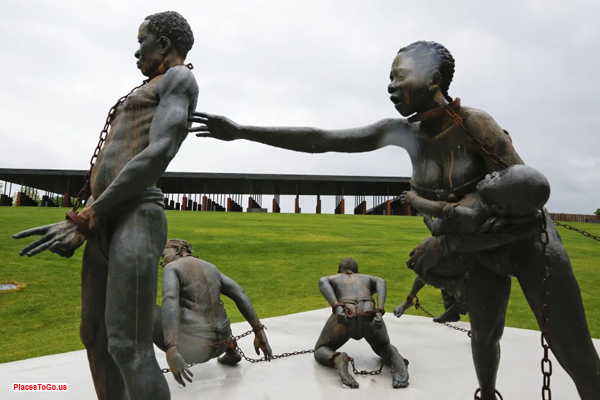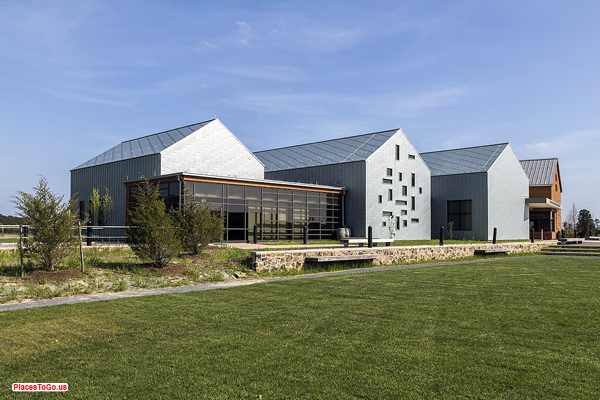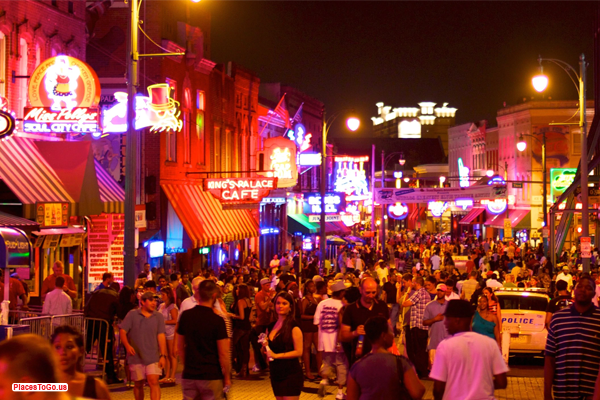Exploring African American Heritage Landmarks
African American history is deeply woven into the fabric of the United States, with countless African American Heritage Landmarks telling powerful stories of resilience, achievement, and cultural contributions. From historic sites of the Civil Rights Movement to vibrant Black communities, these destinations provide a window into the past and an inspiration for the future.
Must-Visit African American Heritage Landmarks
1. Exploring the Smithsonian National Museum of African American History – Washington, D.C.
Located in the heart of Washington, D.C., this museum is dedicated to preserving and showcasing African American history and culture. Its extensive exhibits take visitors on a journey from the transatlantic slave trade to contemporary achievements, offering an in-depth and powerful perspective on Black heritage.
2. The Legacy Museum & National Memorial for Peace and Justice – Montgomery, Alabama
Known as the “lynching memorial,” this site sheds light on the painful history of racial injustice. The museum powerfully showcases African American struggles and triumphs, making it a must-visit for understanding Black history.

3. Maryland’s Harriet Tubman Underground Railroad National Historical Site
Honoring the life of Harriet Tubman, this park preserves significant locations tied to the Underground Railroad. Visitors can follow Tubman’s path to freedom and learn about her heroic efforts to lead enslaved people to safety.

4. Beale Street – Memphis, Tennessee
Once the epicenter of African American culture and blues music, Beale Street remains a thriving cultural landmark. You can enjoy live music, visit historic clubs, and learn about the contributions of Black musicians to American culture.

5. Martin Luther King Jr. National Historical Park – Atlanta, Georgia
This historic site includes Dr. King’s childhood home, Ebenezer Baptist Church, and the King Center, where visitors can reflect on his legacy and impact on the Civil Rights Movement.
Historic Black Communities in the U.S.
Beyond these landmarks, several historically Black communities have played a significant role in shaping African American culture.
- Harlem, New York – A cultural hub of the Harlem Renaissance, known for jazz, literature, and activism.
- Sweet Auburn, Atlanta – Birthplace of Martin Luther King Jr. and home to pivotal Civil Rights landmarks.
- Bronzeville, Chicago – A thriving neighborhood known for its contributions to art, music, and Black entrepreneurship.
Why African American Heritage Matters
Preserving and visiting African American cultural landmarks is essential for keeping history alive. These sites serve as reminders of past struggles and celebrate the achievements that continue to shape America today.
FAQs About African American Heritage and History
- Where are three places that have been important to Black history?
The National Museum of African American History and Culture (D.C.), Martin Luther King Jr. National Historical Park (Atlanta), and the Legacy Museum (Montgomery) are among the most significant sites. - Why is it difficult to trace African American ancestry?
Many historical records were lost or incomplete due to slavery, making it challenging to track family histories accurately. - What is African American cultural heritage?
It includes music, literature, traditions, cuisine, and historical contributions that have shaped American culture. - Who are some key Black historical figures?
Notable figures include Harriet Tubman, Martin Luther King Jr., Frederick Douglass, Rosa Parks, and Malcolm X. - What are some famous Black heritage landmarks?
Notable sites include the Harriet Tubman Underground Railroad Park, Beale Street, and the Selma to Montgomery National Historic Trail. - Should I say Black or African American?
Both terms are commonly used, though preferences may vary among individuals. - How much African DNA do Black Americans typically have?
Studies suggest that African Americans have an average of 73–80% African ancestry, with varying degrees of European and Indigenous heritage.
For more travel guides on historic destinations, check out our Top Destinations section on PlacesToGo.us.
 My Blog My WordPress Blog
My Blog My WordPress Blog




